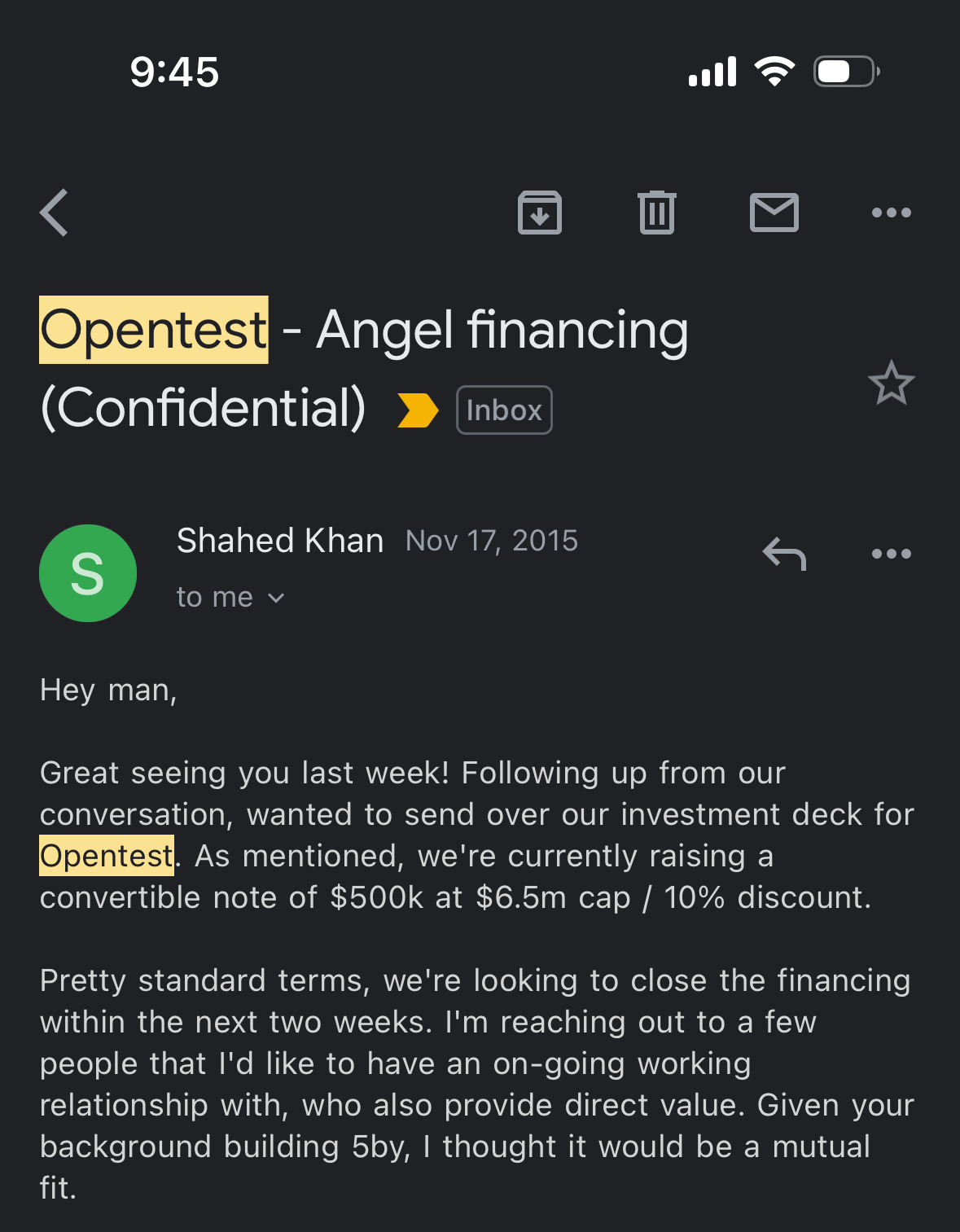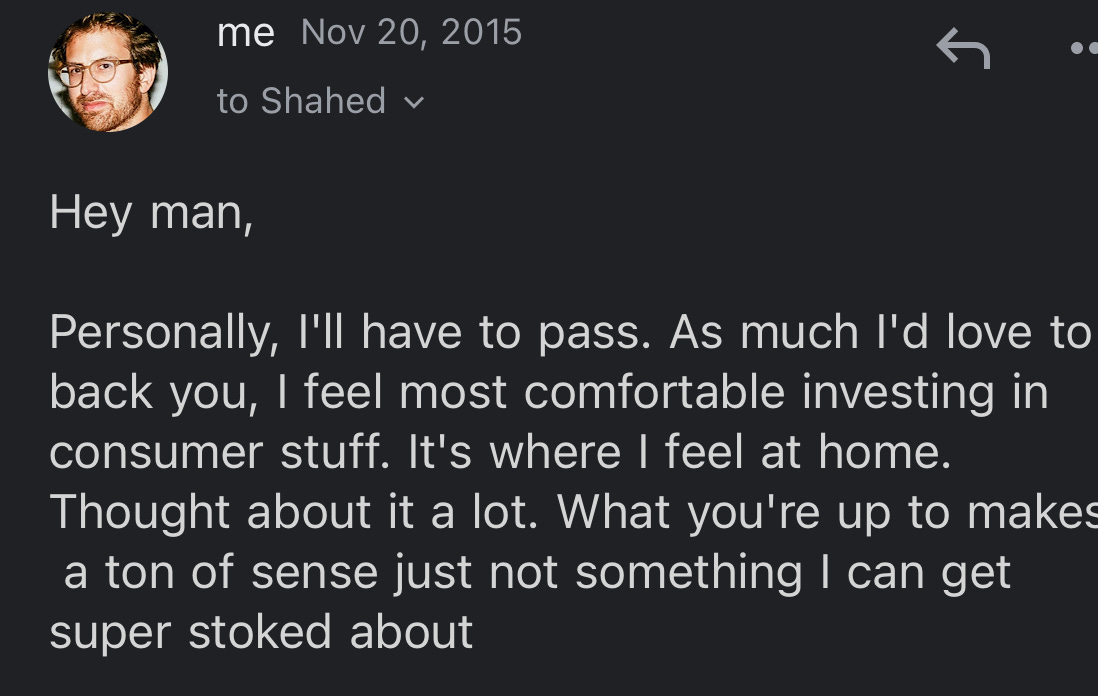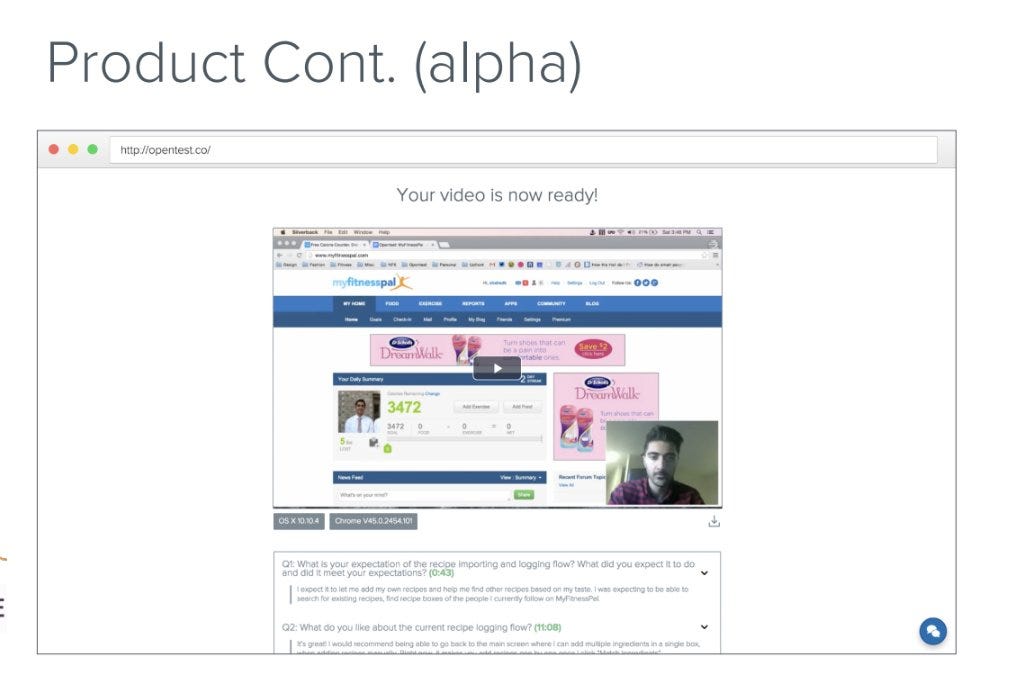How I (almost) made $4M on Loom
Before we begin…
Consider joining Community Empire before we close enrollment.
It’s for people interested in building a cash-flowing business empire powered by community. It’s not for everyone, but it might be for you.
And it comes with a free Skool software subscription. Skool is a community platform for creators and brands.
Start a community, set a subscription price, share a link with your audience, and build monthly recurring revenue. Usually it costs $99/month but its free with Community Empire.
It makes grabbing a Community Empire membership a no-brainer.
Let’s get to this week’s post.
How I (almost) made $4M on Loom
On Thursday, Loom got bought by Atlassian for $975M in CASH, and here’s my little secret:
I passed on investing in their pre-seed round when they were only worth ~$6.5M.
So, my $25k could have turned into a whopping $3M-$4M…ouch.

Today, I’ll distill what I learned from watching them grow from an idea on a napkin into a mega business.
And maybe you’ll be able to create the next Loom.
1. The power in starting small and imperfect
Loom, which not many people know was originally called OpenTest, teaches us a simple lesson about the magic of starting, even when things aren’t perfect.
In the beginning, it wasn’t about having a perfect product or a cool name, but it was all about paying attention to a simple idea I call the "apple and orange" principle:
Sometimes we work hard to make an "orange" when your target market would die for an "apple".
When the team saw that OpenTest was hitting a nerve, they made moves, including changing the name to Loom. They let the buzz of finding a product people wanted guide them, teaching me a crucial lesson:
Quick, messy steps forward are better than waiting around trying to make everything perfect.
Taking this to heart, my team at Late Checkout adheres to a 30-day launch model, which essentially looks like this:
Birth of an Idea: Define the problem, solution, go-to-market strategy, and overarching vision succinctly.
Domain & Social: Secure your digital real estate without spending cycles on the perfect name.
Design Sprint: Quickly generate essential design assets, (we use Dispatch).
Testing Demand: Utilize Framer for a landing page (our experiments spend $1000 per page here)
Crafting a Prototype: Use existing software/APIs/SDKs to create a prototype. Faster and cheaper to get to market.
Starting small and embracing early imperfections isn’t just a methodology; it’s the secret sauce.
2. Diversification fuels wealth
This was my response to Shahed when he asked if I wanted to invest.
Hit pause and rewind with me for a moment: Seeing my "no thanks" to an early stab at investing in Shahed's venture kinda stings now, and it serves up a spicy life lesson I wasn't expecting.
"The best founders stay focused" whispered the VCs I looked up to, pushing the narrative that loading all my chips on a single VC-backed business was the golden ticket to startup stardom.
Time to spill the tea on a less spoken truth:
VCs chanting 'focus' might be doing wonders... for their wallets, not yours. Their strategy leans heavily on your all-or-nothing dive. But when you peek behind the curtain at the skinny odds haunting even the sparkliest VC-backed startups, you realize: putting all your dreams in one startup basket? Maybe not so dreamy.
Here's the gut-check I’m sending back in time to younger me:
Don't let your entrepreneurial spirit chain you to just one dream. Picture yourself as an investment portfolio, a smorgasbord of ventures shielding you from the rollercoaster that is the startup world.
Fast forward to my now: I’m surrounded by a thriving jungle of community-driven, profit-pulling ventures. My past self, hyper-focused on building one business, has evolved into a version of me that nurtures a varied portfolio.
Breaking it down: Smart diversification isn't just shrewd; it's a safety net, gently catching you amidst the wild whirlwind of startups and investments.
Remember: Crafting your business kingdom isn’t about pouring every hope and dream into a single venture. It's about cleverly spreading your seeds, ensuring that you’re insulated from the inherent peaks and valleys of the entrepreneurial landscape.
3. Be Community-Obsessed with Making Things Better
When I'd run into Loom's founders, Joe, Vinay, and Shahed, the conversation was never focused around iterating on the product for the community.
They never talked about fundraising
They never talked about optimizing valuation
They never talked about M&A
Product over everything.
They constantly tweaked and adjusted, always with an ear to their community, never just chasing a big payday.
The payday was the iteration.
And iteration pays off.
❤️ Greg’s bookmarks:
This is my first time seeing a “mini-CD”. It’s brilliant. Gives me lots of ideas to create similar physical meets digital products. Link
This kid is making $50k/month with $0 marketing spend selling stupid t-shirts on Tiktok. Here is his “stupid strategy” Link
Losing a customer like losing a community. This is a really interesting POV on retention of customers by board member of Gamestop Larry Cheng. Link
The test for how do you know if you REALLY want something. Link
How to think about hiring advisors. As someone who runs several agencies and hires agencies, I can attest to this framework. The top 1% of advisors are the holy grail. Link
That’s a wrap!
I hope you enjoyed this week’s post. Tag me on Twitter if you did. I read every mention.
And if you want to learn more about building businesses powered by community, I’d check my Podcast on Apple Podcasts, Spotify or YouTube. And I’ll see you in Community Empire if that’s your thing.
P.S:
One of the most common questions I get:
How do I create beautiful websites and apps like the Late Checkout website?
Well - I use Dispatch for my visual design. Websites, apps, social posts. Anything visual.
Hire them here.
And I use BoringMarketing for SEO growth but that’s another story. You’ve probably seen BoringMarketing on Twitter here.






This is excellent. Trail lawyers, of all people, have a similar technique: review every 'misstep' and coming up with 5 'to dos' that will prevent that from happening again. It also transforms a less than satisfactory experience into a learning experience, which if not fun, is at least close to it.
Enjoyed this Greg. All the best